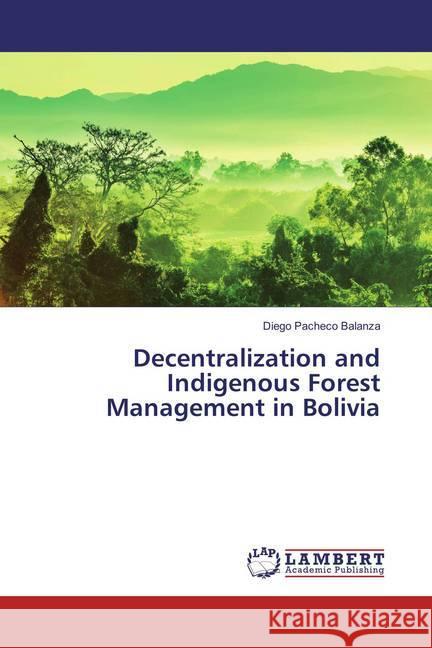Decentralization and Indigenous Forest Management in Bolivia » książka
Decentralization and Indigenous Forest Management in Bolivia
ISBN-13: 9783659830617 / Angielski / Miękka / 2016 / 236 str.
Bolivia is a country where, since the mid 1990s, the most aggressive forestry decentralization in the world has taken place, promoting involvement of the indigenous population in commercial forest management and particularly in timber harvesting. About 85% of the total Bolivian forests (50 million hectares) are located in the lowlands, where at least 40% of the indigenous population resides. Indigenous people who have lived in the forests for centuries have demanded 20 million hectares of forestland from the government as common property. In the 2007 there were almost 70 timber user groups already utilizing 1 million hectares with Forest Management Plans to carry out timber harvesting. This research seeks to contribute to understanding the main motivations that forestry decentralization policies have created among indigenous people for developing timber harvesting in the context of broader forest governance reforms, and the extent to which they are achieving successful community logging, that is, the development of good timber management while obtaining the highest timber profits.











